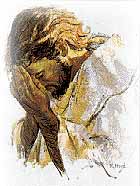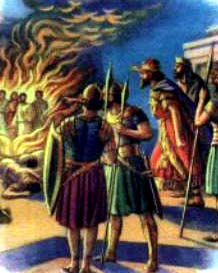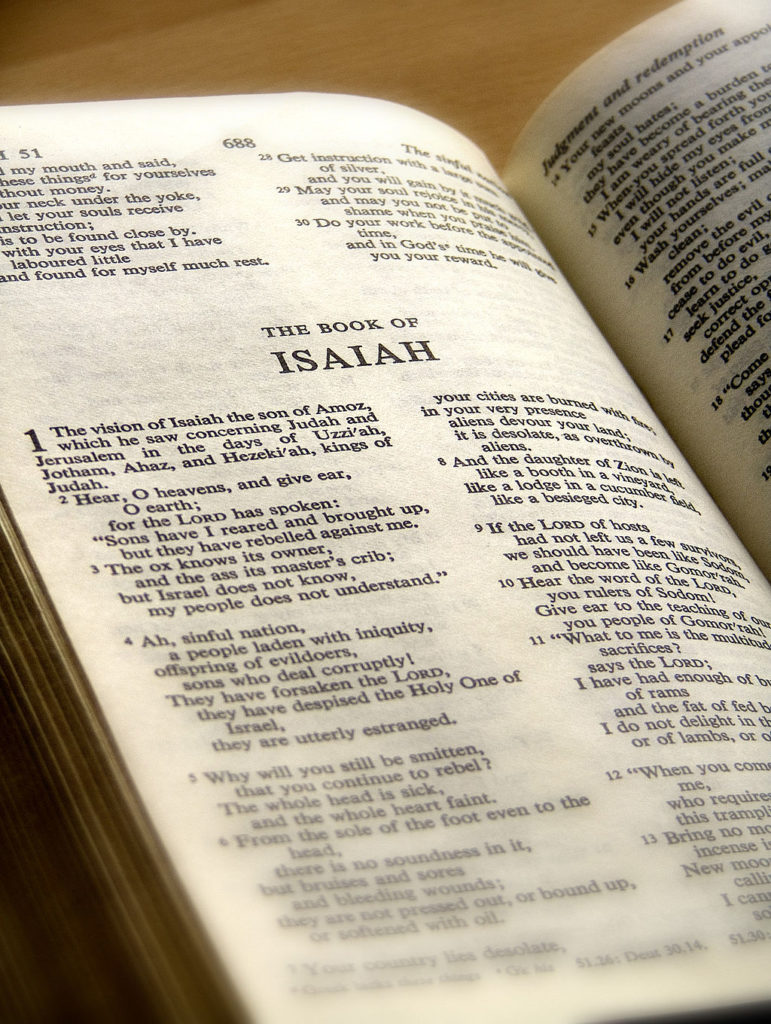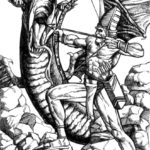Writing About Jesus
 In a recent post, writing about Jesus in fiction came up with this conclusion: not every story needs to be about Jesus.
In a recent post, writing about Jesus in fiction came up with this conclusion: not every story needs to be about Jesus.
I agree. And I disagree.
I think a lot more Christian writers could write about Jesus if we chose to.
There are ways of writing about Jesus without being “on the nose.” This phrase, one screenwriters sometimes use, has slid on over to fiction and means that the dialogue and actions of a story aren’t nuanced. Author Richard Von Anderson explains it like this:
the character’s innermost thoughts and feelings are fully expressed by what the character is saying or doing. There is no nuance, mystery, ambiguity or surprise (as there is in real life). The subtext has been written directly into the text.
Comedy writer Ken Levine calls on the nose writing “a rookie mistake.”
Could it be, then, that writing about Jesus as the Savior who came to die for the forgiveness of sins is “on the nose” writing, and therefore amateurish?
Not necessarily, but maybe.
Writing about who Jesus is, can certainly come across as anything but subtle or mysterious, but I suggest it doesn’t have to be that way. Look at the Bible, for instance. Any number of people have extrapolated the truth about Jesus hidden in each book of the Bible, and yet most Old Testament books don’t even directly mention the Messiah. A few don’t even mention God.
And yet they are about Jesus?
Yes, in an oblique way or by analogous elements. Here’s one rendition:
in Genesis: Jesus is The Seed of The Woman, a descendant of Abraham, a king in the line of Judah in the order of Melchizedek. The sacrified Son (as like Isaac, Gen 22) and a rejected brother (as like Joseph, Gen 27).
in Exodus: Jesus is The Passover Lamb, the leader and deliverer out of slavery (as like Moses), the manna from heaven, the rock that gave water, the Tabernacle in the camp and every item inisde (Brazen Alter, Lampstand, Table of Showbread, Ark of the Convenant, etc.).
in Leviticus: Jesus is The High Priest, personified by the sacrifices and offering, the Jewish festivals (Passover, Atonement, Trumpets, etc.). The scapegoat and the what Christ does as our high priest.
in Numbers: Jesus is The Cloud and The Fire, the Messiah that would be King. The healer in the bronze serpent. The Water from the Rock.
in Deuteronmy: Jesus is The Prophet Like Moses, worshipped by angels. He is the cities of refuge.
in Joshua: Jesus is The Captain of Our Salvation, our leader into the promise land (as like Joshua), the commander-in-chief of the Army.
in Judges: Jesus is The Judge And Lawgiver, the true judge for the living and the dead.
in Ruth: Jesus is The Kinsman Redeemer, the descendent of Boaz and Ruth. As personified by Boaz. in
1 & 2 Samuel: Jesus is The Prophet of The Lord, exalted by God with power. A descendent of David, personified by David – the exiled King. The faithful friend (Jonathan).
in 1 & 2 Kings, 1 & 2 Chronicles: Jesus is The Reigning King, for the Millennial Reign (as like Solomon). Multipling bread and healing leper (as like Elisha).
in Ezra: Jesus is The Faithful Scribe, the builder of the temple (Zerubbabel).
in Nehemiah: Jesus is The Rebuilder of The Broken Down Walls, the rebuilder of the walls of salvation (as like Nehemiah).
in Esther: Jesus is Mordecai, the personified. The Guardian.
in Job: Jesus is The Dayspring From on High, the sufferings and the subsequent blessings (as like Job).
in Psalms: Jesus is The Lord Who Is Our Shepherd, the resurrected Son of God, that was despised and crucified; Hated without cause, rejected by the Israelites. But now seated on the right hand of God.
in Proverbs & Ecclesiastes: Jesus is Wisdom of God.
in The Song of Solomon: Jesus is The Lover & Bridegroom.
See Jesus (In Every Book Of The Bible),
6: bible nerdin Isaiah: Jesus is The Suffering Servant. Born of a virgin, the Immanuel “God with us”. The God and Man, with 7-fold spirit upon Him. He healed the blind, lame and deaf, proceeded by a forerunner. A light to the Gentiles but despised by the Israelite nation. He was whipped and beaten; and finally die as a guilt offering for sin. But He resurrected and live forever.
in Jeremiah & Lamentations: Jesus is The Weeping Prophet, the righeous Branch, our righteousness.
in Ezekiel: Jesus is The son of Man, a descendent of David.
in Daniel: Jesus is The Son of Man coming in the clouds of Heaven, given an everlasting kingdom. He came 483 years after the decree to rebuild Jerusalem. Foretold He would be kill and revealed as the stone that smashed the kingdoms of the world. The 4th Man in the fiery furnace.
in Hosea: Jesus is The Bridegroom Married to The Backslidden Woman, the faithfulness to his adulterous wife.
in Joel: Jesus is Baptized With The Holy Spirit And Fire, offered salvation to all mankind and baptize people with the Holy Spirit.
in Amos: Jesus is The Burden Bearer, that darken the day at noon during Messiah’s death.
in Obadiah: Jesus is The Mighty Savior.
in Jonah: Jesus is The Forgiving God, being 3 days and 3 nights in the belly of a fish.
in Micah: Jesus is The Messenger With Beautiful Feet, born in Bethlehem and from everlasting.
in Nahum: Jesus is The Avenger of God’s Elect.
in Habakkuk: Jesus is The Great Evangelist, Crying For Revival, the Messiah that would come from Teman at His return, full of glory. With intercession and prayer for His people (Habakkuk).
in Zephaniah: Jesus is The Restorer of God’s Lost Heritage.
in Haggai: Jesus is The Cleansing Fountain, who visited the 2nd temple.
in Zechariah: Jesus is The Pierced Son, a Priest and King who ride into Jerusalem on a donkey. The Messiah who would be God and be pierced.
in Malachi: Jesus is The Son of Righteousness, Rising with Healing in His Wings, the Messiah who would be God who appear at the temple and His forerunner came in the spirit of Elijah.
in Matthew: Jesus is The King, the Song of David, the King of the Jews, the Son of God and the Bridgeroom.
in Mark: Jesus is The Wonder Worker/Servant, The Holy One of God, the Servant, the King of Israel.
in Luke: Jesus is The Son of Man, the Horn of Salvation and the Consolation of Israel.
in John: Jesus is The Son of God, the Begotten Son, the Lamb of God, the Bread of Life, the Light of the world, the I AM, the Door of the sheep, the Good Shepherd, the Resurrection and Life, the Way, the Truth and the Life. The True Vine.
in Acts: Jesus is The Ascended Lord, the Prince of Life, the Judge of the living and the dead, the Just One, and the Hope of Israel.
in Romans: Jesus is The Justifier, the Rock of Offense, the Deliverer, the Lord of the dead and the living. The Root of Jesse.
in 1 & 2 Corinthians: Jesus is The Gifts of The Spirit, the First-Fruit and the Last Adam.
in Galatians: Jesus is The One Who Sets Us Free, the Lord Jesus Christ.
in Ephesians: Jesus is The Christ of Riches, the Head of All Things and the Conerstone.
in Philippians: Jesus is The God Who Meets Our Every Need, the Name above all names.
in Colossians: Jesus is The Fullness of The Godhead, the Image of the Invisible God, the Head of the body, the Beginning, the Firstborn of the dead and the Hope of Glory.
in 1 & 2 Thessalonians: Jesus is The Soon Coming King, the lord of Peace.
in 1 & 2 Timothy: The Mediator Between God And Man, the King of Ages and the Mediator.
in Titus: Jesus is The Faithful Pastor, the Blessed Hope. The Great God and Saviour.
in Philemon: Jesus is The Friend That Sticks Closer Than a Brother, the Lord Jesus Christ.
in Hebrews: Jesus is The Blood That Washes Away My Sins, the Heir of all things, the Faithful High Priest, the Author and Finisher of our faith.
in James: Jesus is The Great Physician, The Lord of Glory and the Judge at the door.
in 1 & 2 Peter: Jesus is The Chief Shepherd, and the Living Stone.
in 1 & 2 & 3 John:Jesus is Everlasting Love, the Eternal Life and the Righteous.
in Jude: Jesus is The Lord Who Came Down with 10,000 Saints, the Only Wise God our Savior.
in Revelation: Jesus is The King of Kings and the Lord of Lords! The Alpha and the Omega, the Beginning and the End. The Lion of the Tribe of Judah, the Word of God, the King of kings and Lord of lords, the Bright Morning Star.
This kind of summation of the Bible as a united book about Jesus is especially impressive, I think, when you hear someone recite it. But it might be more memorable when you have it in writing.
At any rate, I don’t think the books of the Bible are the only books that can be about Jesus without actually being about Him. I think novelists can do the same thing, but it seems to me, most who want to write about Jesus do so by being on the nose. Perhaps stories with more surprise or even ambiguity would have more impact.
 Think about it. If you had never read about Daniel’s friends who were thrown into the fiery furnace for not bowing to an idol, what would you think when you got to the part where the king gives them a second chance? Would you expect they would back down? Or die? Or that the king would extend leniency? Blaaat! None of the above.
Think about it. If you had never read about Daniel’s friends who were thrown into the fiery furnace for not bowing to an idol, what would you think when you got to the part where the king gives them a second chance? Would you expect they would back down? Or die? Or that the king would extend leniency? Blaaat! None of the above.
The king became furious that the men had spurred his mercy and rejected him as the object of their worship (since the idol was a statue of him), so he ramped up the punishment for their refusal to bow. But they didn’t die, though the fire was so hot it killed the guards who forced them to enter the furnace. What a reversal! But there’s more. While the fire was not killing the three men, they were moving about freely. With a fourth person.
Was that an angel, or as some think, the pre-incarnate Christ? Ambiguity. Suggestion. Surprise.
We rarely think about those elements of the Biblical record because we know the stories so well. We don’t think about their impact upon a first-time reader.
Of course novelists don’t write inspired Scripture, but I think we can learn from the Bible. Writing about Jesus isn’t always writing the gospel account of His life or the plan of salvation. There’s more to writing about Him than writing on the nose.











































I love when you preach, Rebecca! I love it!
Thanks for your encouragement, Parker. 😀
Becky
I love this so much! Thank you, Becky!
Glad to share it, Pam. We recently had a guest minister quote one version of this. So inspiring.
Becky
I agree with all of this, as far as the Word of God is concerned — the Lord Jesus is beautifully pictured and symbolized throughout Scripture in many ways, even before His incarnation. Yet the Bible is not a short story or a novel, but non-fiction — even though it contains history, prophecy, poetry, and other genres, none of them really fit the framework of the modern novel.
So how do we apply this argument to fiction? How can Christian writers portray Jesus — not merely a fallible human character who resembles Jesus in one or two ways or in certain situations, as even many non-Christian authors do, but actually the Lord Jesus Christ Himself, in a way that we can recognize Him?
Do we create a character to insert into our fantasy novels who fills the same role in that world as Jesus does in our own? Do we focus our storytelling on the relationship between our protagonists and this Christ-character, and how their understanding of Him develops through their life experiences? If so, how is this different from any of the many attempts at allegorizing Jesus that have already been written, and how does it escape the danger of being “on the nose”?
I’m not trying to be facetious or difficult here, I would sincerely like to know.
I think these are all good questions, RJ. But I guess, what I’m thinking is that if we write a story about a “King David,” flawed though he may be, he can still point to Jesus Christ. Because David did in real life, I think a character can in fiction. It may not do more than whet the appetite of readers, but that’s what mythology did for C. S. Lewis. He grew to long for the reality of a hero stepping in to rescue and defeat the dragon. But I think we may have lost this idea that our stories can include types of Christ. We expect a “Christ figure,” which either doesn’t ring true because he’s sinful or doesn’t ring true because he’s too perfect.
I think we can create Christ figures, but I don’t think we’re limited to that. It seems to me that people are opting for a vague “worldview” solution, as if being Christian will somehow rub off on our stories. My contention is that we can do more. We can intentionally prep the soil, creating characters that aren’t just nice guys (because sometimes Jesus wasn’t nice), but who prove to be a shepherd or living water or door or king or servant or any of the other ways Scripture portrays Jesus.
I suspect those stories will have detractors–some reviewers saying, I don’t know how this book is Christian. But I think it’s worth trying.
Becky
I absolutely agree with all of this and would love to see more of it. I think George MacDonald was brilliant at incorporating types of both God the Father and the Son into his fantasy, though he doesn’t get a lot of credit for it because the characters who embody those divine attributes and authority are frequently women (such as the old Queen Irene in the Curdie books, and the Wise Woman in The Lost Princess).
He manages to do it without being in the least irreverent or heterodox, amazingly enough, but I’m not sure a modern Christian publisher would be eager to tackle a similar approach today.
Also, Megan Whalen Turner’s Attolia series (The Thief, The Queen of Attolia, The King of Attolia, A Conspiracy of Kings) is one of the most compelling and truthful examinations I’ve ever read of the relationship between humanity and the divine, including some genuinely awe-inspiring reminders of how God’s ways are higher than our ways and His thoughts higher than our thoughts. Yet it’s based on a pantheistic (quasi-Greek) mythological premise, which again is something one isn’t likely to see in Christian fantasy. (I’m not the only one who said “Yes, THIS” when reading the series, though, as shown by Carrisa Smith’s glowing review at Christ and Pop Culture.)
Well, I’d hope Christians would also consider writing about Jesus in this way for the general market.
I don’t think we need to write the same way when we expect our audience will be primarily Christian than if we write for an audience that will likely be mixed. Christians should be challenged with different issues, I think.
BTW, RJ, I thought you did exactly what I’m suggesting in Knife.
Becky